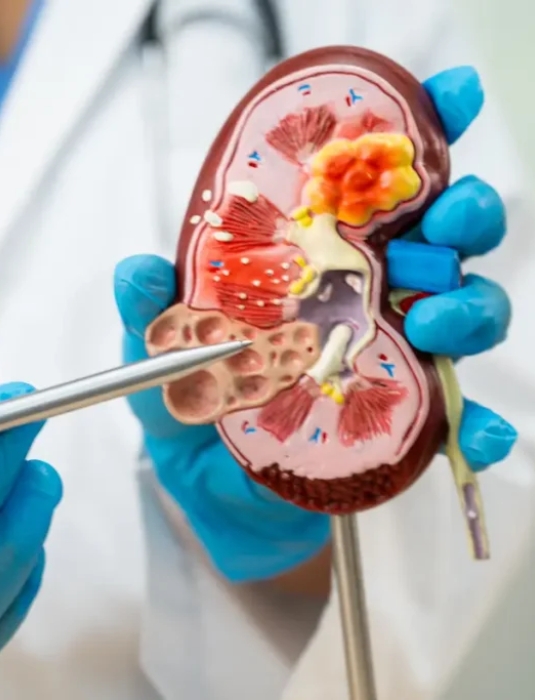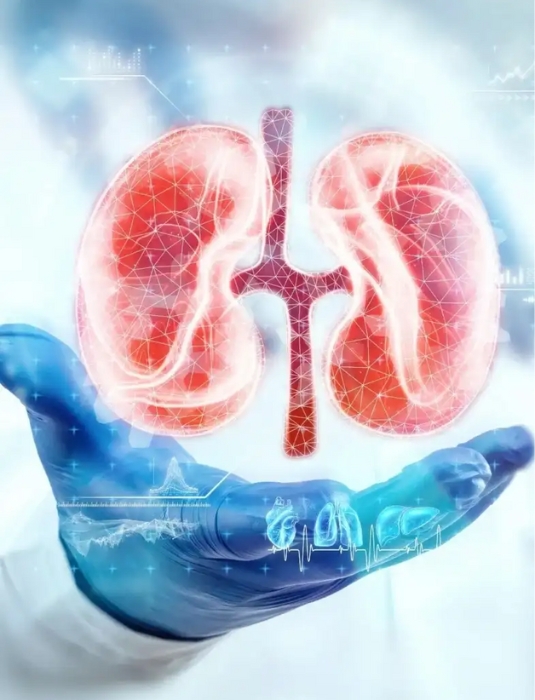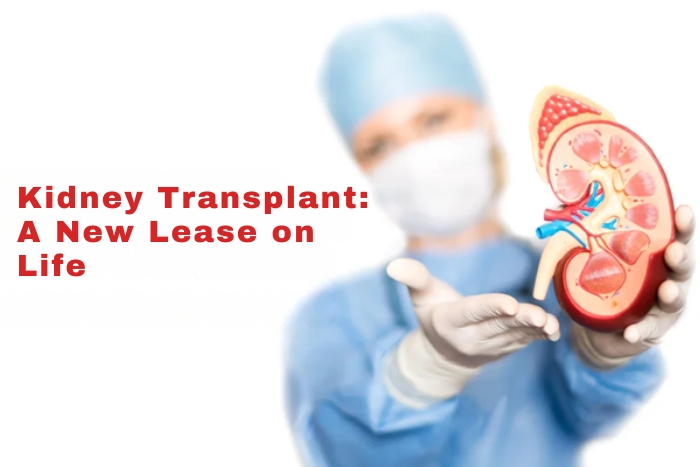Kidneys are vital organs that filter waste, maintain fluid balance, and regulate blood pressure. When they fail, life can become dependent on dialysis. For many patients, kidney transplant offers hope, freedom, and a healthier future.
What is a Kidney Transplant?
A kidney transplant is a surgical procedure where a healthy kidney from a donor is placed into a patient whose kidneys no longer function properly. The donor may be:
- Living donor – usually a family member or close relative.
- Deceased donor – kidney donated after brain death.
Since only one healthy kidney is required for survival, living donation is often possible.


Who Needs a Kidney Transplant?
Patients with end-stage kidney disease (ESKD) or chronic kidney disease (CKD) may require a transplant when:
- Kidney function drops below 15%
- Dialysis is needed frequently
- Lifestyle and health are severely affected
Common causes include diabetes, high blood pressure, polycystic kidney disease, and chronic infections
Benefits of Kidney Transplant Over Dialysis
- Better quality of life – no dependency on dialysis machines
- Longer survival rates compared to long-term dialysis
- More energy and productivity
- Fewer dietary restrictions
- Improved overall health
The Kidney Transplant Process
- Evaluation – medical tests, organ matching, and psychological assessments.
- Finding a donor – living or deceased donor matching.
- Surgery – placement of the new kidney in the lower abdomen.
- Recovery & monitoring – regular follow-ups, medications, and lifestyle care.
Life After a Kidney Transplant
- Immunosuppressant medicines are essential to prevent rejection.
- Healthy lifestyle: balanced diet, exercise, no smoking/alcohol.
- Regular check-ups: to monitor kidney function.
- Emotional support: adapting to a new phase of life.
Most patients enjoy a significant improvement in life expectancy and return to daily activities within weeks to months.
How Telemedicine Helps in Transplant Care
With modern technology, patients don’t need to travel frequently for follow-ups.
- Virtual consultations with transplant specialists
- Medication reminders & monitoring
- Dietary & lifestyle guidance online
- Emergency access to doctors worldwide
This ensures continuous care and better recovery outcomes.
Conclusion
A kidney transplant is not just a surgery—it’s a second chance at life. With the right medical guidance, regular monitoring, and lifestyle care, transplant patients can live long, healthy, and fulfilling lives.

